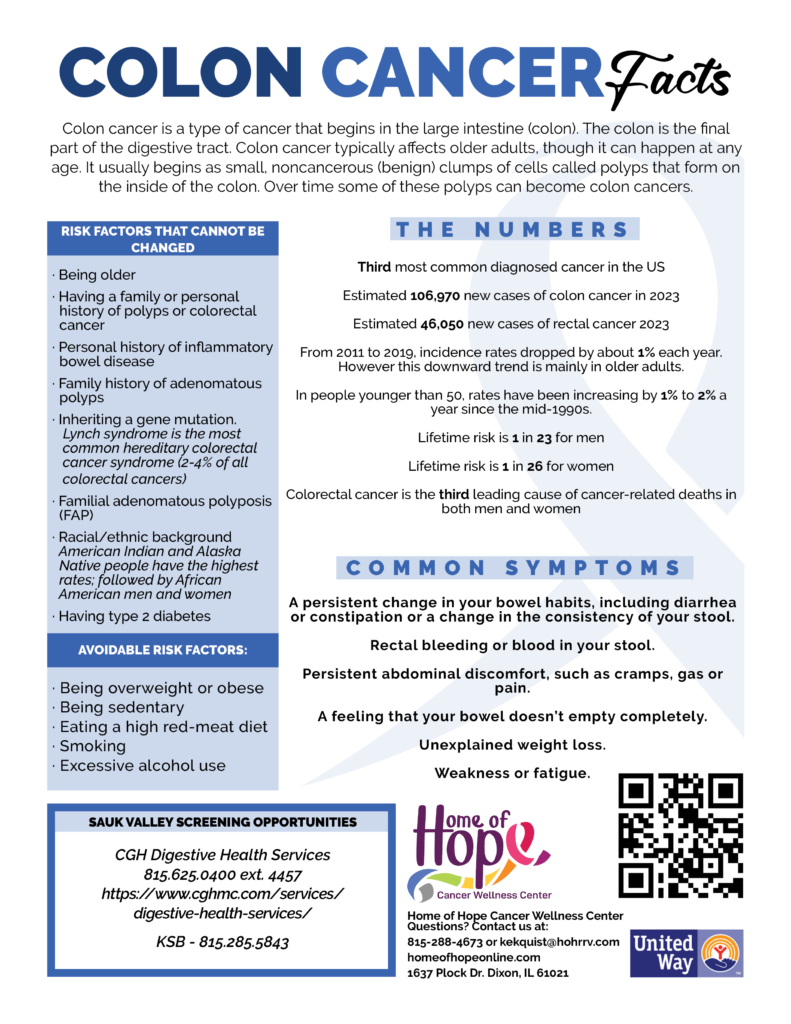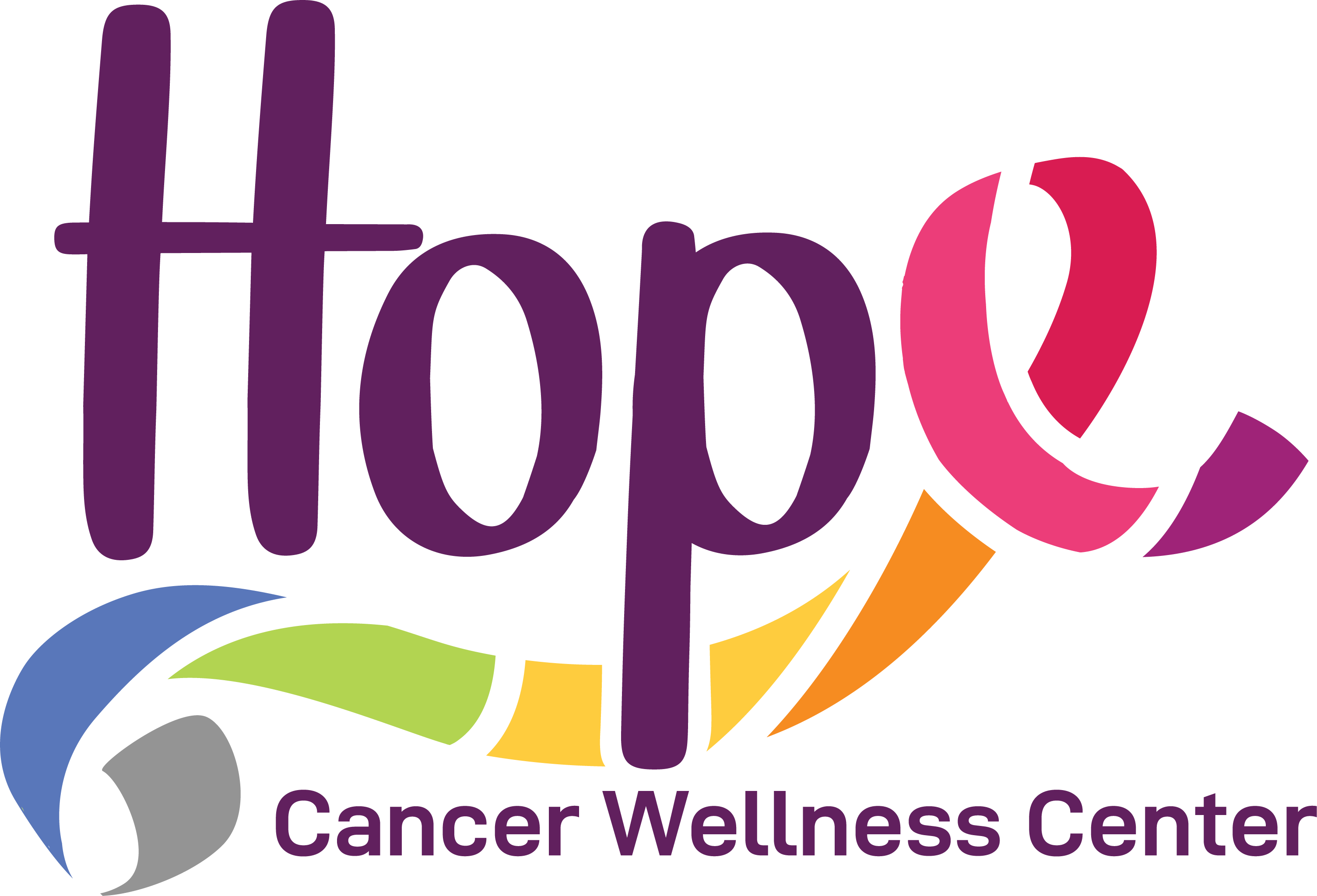
Colon cancer is a type of cancer that begins in the large intestine (colon). The colon is the final part of the digestive tract. Colon cancer typically affects older adults, though it can happen at any age. It usually begins as small, noncancerous (benign) clumps of cells called polyps that form on the inside of the colon. Over time some of these polyps can become colon cancers.
The Numbers
- Third most common diagnosed cancer in the US
- Estimated 106,970 new cases of colon cancer in 2023
- Estimated 46,050 new cases of rectal cancer 2023
- From 2011 to 2019, incidence rates dropped by about 1% each year.
However this downward trend is mainly in older adults. - In people younger than 50, rates have been increasing by 1% to 2% a year since the mid-1990s.
- Lifetime risk is 1 in 23 for men
- Lifetime risk is 1 in 26 for women
- Colorectal cancer is the third leading cause of cancer-related deaths in both men and women
Risk Factors That Cannot Be Changed
- Being older
- Having a family or personal history of polyps or colorectal cancer
- Personal history of inflammatory bowel disease
- Family history of adenomatous polyps
- Inheriting a gene mutation. Lynch syndrome is the most common hereditary colorectal cancer syndrome (2-4% of all colorectal cancers)
- Familial adenomatous polyposis (FAP)
- Racial/ethnic background American Indian and Alaska Native people have the highest rates; followed by African American men and women
- Having type 2 diabetes
Avoidable Risk Factors
- Being overweight or obese
- Being sedentary
- Eating a high red-meat diet
- Smoking
- Excessive alcohol use
Common Symptoms
- A persistent change in your bowel habits, including diarrhea or constipation or a change in the consistency of your stool.
- Rectal bleeding or blood in your stool.
- Persistent abdominal discomfort, such as cramps, gas or pain.
- A feeling that your bowel doesn’t empty completely.
- Unexplained weight loss.
- Weakness or fatigue.
Sauk Valley Screening Opportunities
- CGH Digestive Health Services 815.625.0400 ext. 4457 https://www.cghmc.com/services/digestive-health-services/
- KSB – 815.285.5843
Mayo Clinic (2018). Colon Cancer – Symptoms and Causes. Mayo Clinic; Mayo Clinic. https://www.mayoclinic.org/diseases-conditions/colon-cancer/symptoms-causes/syc-20353669
American Cancer Society. (2019). Key Statistics for Colorectal Cancer. Cancer.org; American Cancer Society. https://www.cancer.org/cancer/colon-rectal-cancer/about/key-statistics.html
American Cancer Society. (2017). Colorectal Cancer Risk Factors. Cancer.org; American Cancer Society . https://www.cancer.org/cancer/colon-rectal-cancer/causes-risks-prevention/risk-factors.html
